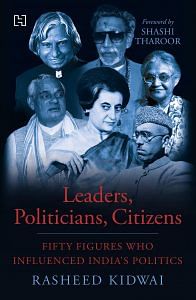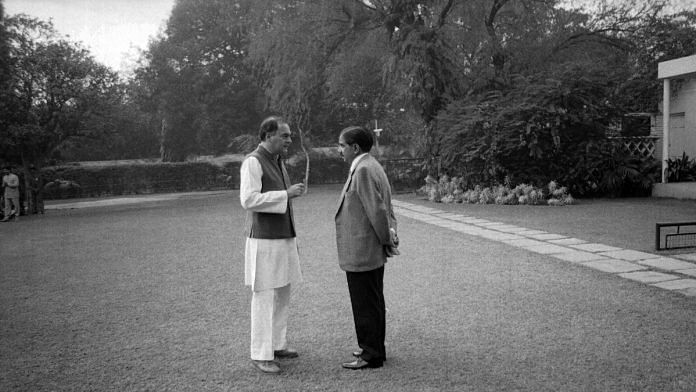A few years ago, congress president sonia gandhi was at a meeting with senior party leader at 10 Janpath when she suddenly turned to R.K. Dhawan. ‘So you are also writing a book?’ she asked. Dhawan was speechless, and his book, an autobiographical account, was subsequently shelved.
This was around the time when M.L. Fotedar, Natwar Singh, Salman Khurshid, Pranab Mukherjee, Margaret Alva and a host of other Congress leaders had written books and memoirs that had caused embarrassment to Sonia Gandhi and the party. In October 2014, Dhawan had gone public saying he was ‘inclined’ to write a book that would ‘reveal a lot’ about former prime minister Indira Gandhi and her son Rajiv Gandhi. Dhawan had told Ritu Sarin of The Indian Express: “My book will not be like that of Natwar Singh, which says nothing. It will reveal a lot. This is because I strongly feel a leader should not appoint any friends or relatives to posts like that of a minister. This is the mistake Rajiv Gandhi made with the likes of Arun Nehru, Arun Singh and M.L. Fotedar, all of whom poisoned him against me.
Dhawan, addressed as R.K.D. in party circles, was a curious mix of a die-hard Nehru–Gandhi family loyalist, gatekeeper and an executioner who installed and removed duly elected chief ministers of Congress-ruled states, almost at will. Such was his influence that he was referred to as ‘Dhawan Saab’ by even the rich and the powerful who wanted an audience with Indira Gandhi. In the early 1970s, Dhawan, who was Indira Gandhi’s stenotypist then, had shot to fame for being the prime minister’s messenger. Gandhi used to avoid direct instructions to her ministers, chief ministers and state party heads; Dhawan was her conduit who conveyed unpleasant and often awkward decisions. The game plan was that if things went wrong, Dhawan would get the blame – an arrangement that placed great powers in his hands.
Also read: The story of how RSS leaders deserted Jayaprakash and the resistance during Indira’s Emergency
Dhawan is credited with spotting Sanjay Gandhi’s political ambitions. The young man had just returned from Crewe after an internship at Rolls Royce when Dhawan, as Indira Gandhi’s personal assistant, started introducing him to Congress bigwigs. He also advised some Congress leaders to praise him in Indira Gandhi’s presence. Within months, Indira Gandhi was somewhat convinced of her son’s political acumen and by the time the Emergency was imposed, Dhawan enjoyed the confidence of both mother and son. Dhawan was responsible for setting up a special telephone line in Sanjay Gandhi’s room at the prime minister’s residence. Calls and instructions were issued for and on behalf of Sanjay Gandhi to many chief ministers of party-ruled states and, on most occasions, Indira Gandhi was not even aware of her son’s growing unconstitutional clout.
Three days before the Emergency was imposed, Dhawan and Sanjay had managed to shunt out Union Home Secretary N.K. Mukherjee and replace him with S.L. Khurana, the chief secretary of Rajasthan then. A core team consisting of a junior home minister Om Mehta and Bansi Lal was in place to ensure that electricity supply to newspaper offices was cut off on the night of 25 June 1975 when the Emergency was declared.
Also read: From Nehru’s stenographer to Indira’s man Friday, the life and times of R.K. Dhawan
Post-Emergency, however, Dhawan tried to distance himself from the excesses committed during the period. He told author Coomi Kapoor: “The real culprit of the whole Emergency was S.S. Ray. Afterwards, he (Ray) tried to disown responsibility, and put the blame for everything on Indira in the Shah Commission.” Dhawan has been quoted by Kapoor in her book The Emergency: A Personal History as saying the following about the time of the Shah
Commission hearings: “Ray once went up to Indira and remarked, ‘You are looking fit.’ She replied coldly, ‘You are doing your best to keep me fit.’ She never spoke to him again. […] Ray, like so many of those who were party to the Emergency excesses had, post-March 1977, tried to deny his involvement and pin the blame entirely on Sanjay and Mrs Gandhi.”
With the exception of Ambika Soni and Jagmohan, Dhawan was one of the last important players of the Emergency era. He always defended Indira Gandhi and blamed the likes of Siddhartha Shankar Ray and law minister H.R. Gokhale for ‘misleading’ Gandhi on the constitutional provisions of the Emergency to deal with internal disturbances. Dhawan’s influence on Indira Gandhi can be gauged from one episode when he made her offer namaz. Before the January 1980 general election, when Indira Gandhi was out of power, Dhawan would bring in a range of gurus, maulvis, babas and munis to provide some kind of solace to her. One such visitor was Maulana Jameel Ilyasi, a Mewati, who ran a mosque at New Delhi’s Kasturba Gandhi Marg. Ilyasi, a glib talker, predicted a landslide victory for Indira Gandhi in the seventh Lok Sabha elections provided she allowed him access to her bedroom. The unusual demand was met with Dhawan’s approval and Ilyasi tied a ganda (charm) to the ceiling, instructing her to summon him immediately after securing 350-plus
parliamentary seats. The Indira Gandhi-led Congress won 353 seats in the elections.
Also read: R.K. Dhawan stood by Sonia Gandhi when no one else did
After the victory, Indira Gandhi forgot about Ilyasi and his charm. On 23 June, her son Sanjay Gandhi died in a plane crash. Indira Gandhi was devastated. Ilyasi was soon back in Indira’s court lamenting why he had not been allowed to remove the powerful charm that he claimed had produced an adverse impact on her life. The ‘wrong’, Ilyasi declared, had to be rectified immediately. Indira Gandhi, shaken and emotionally weak after the tragedy, conceded. Ilyasi told her to pray to God and the physical drill he instructed her to follow was almost like offering namaz. When Indira Gandhi said she did not know how to offer namaz, Ilyasi told her to follow what he was doing; she obliged under the watchful eyes of Dhawan. Dhawan himself turned extremely religious when he was implicated by the Thakkar Commission of Inquiry in Indira Gandhi’s assassination. Dhawan was a step behind her when two of her security guards – Beant Singh and Satwant Singh – sprayed her with bullets. One unauthorized version claimed that Beant, at the time of the shooting, had instructed Satwant, his junior, to ensure that Dhawan was not hurt. The report that was selectively leaked in the Indian Express pointed the needle of suspicion at Dhawan. Rajiv Gandhi, who was prime minister and the Congress president then, did not waste any time in removing Dhawan from all key posts and positions.
 Excerpted with permission from ‘Leaders, Politicians, Citizens’ by Rasheed Kidwai, published by Hachette India.
Excerpted with permission from ‘Leaders, Politicians, Citizens’ by Rasheed Kidwai, published by Hachette India.



